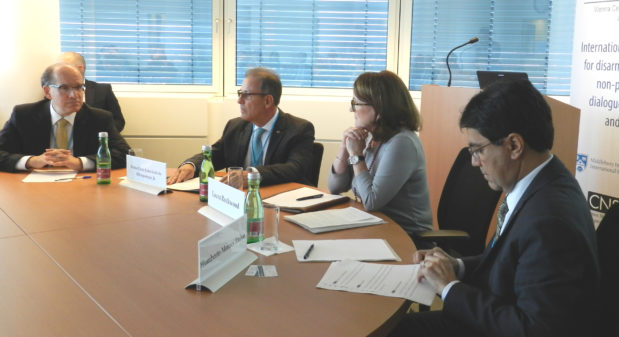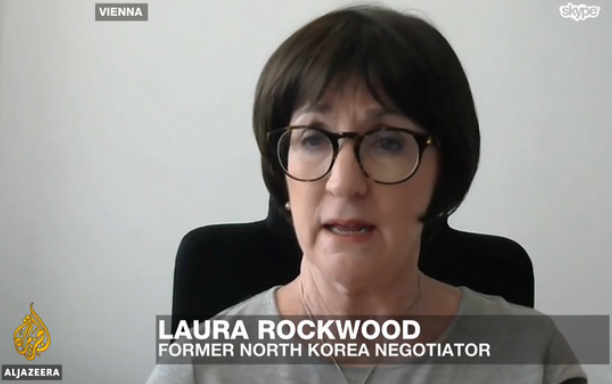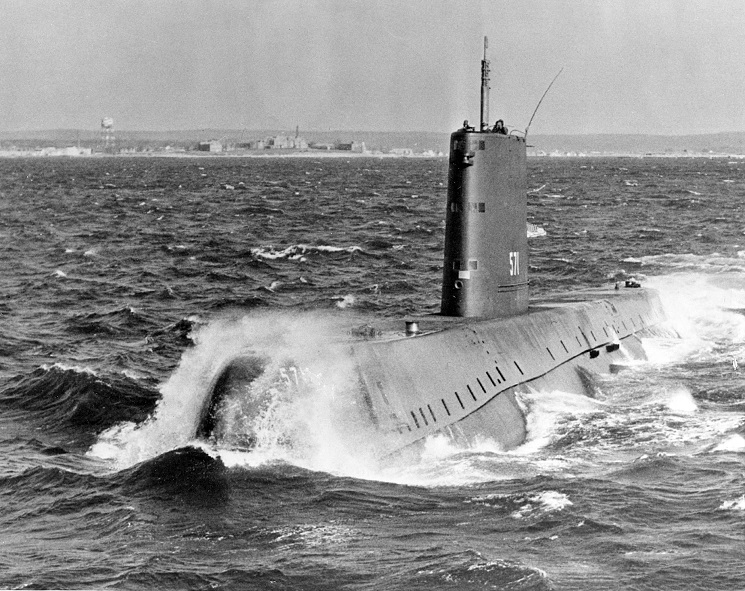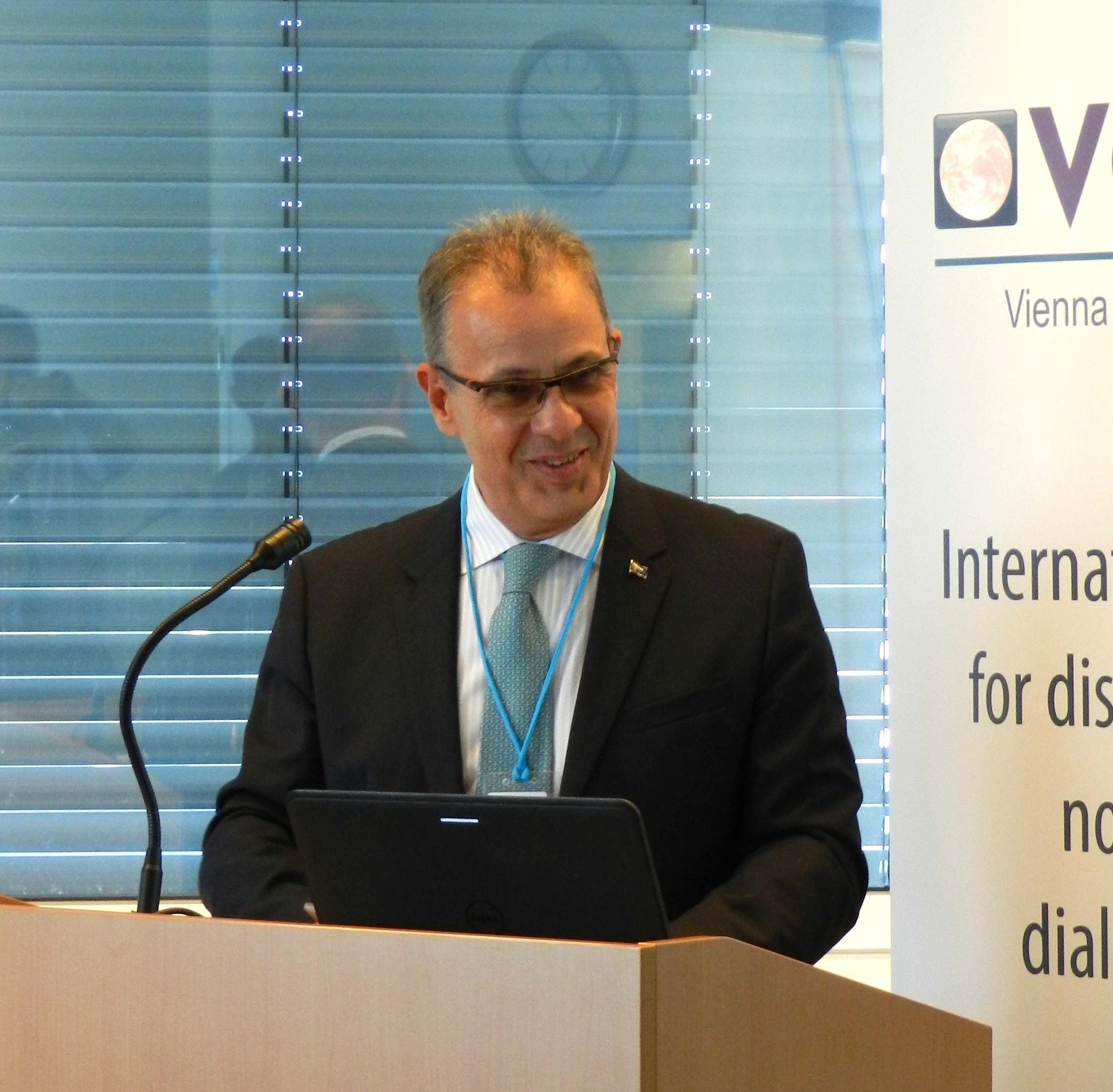
On 18 September 2018, the VCDNP was pleased to host a seminar featuring a Brazilian delegation to the 62nd International Atomic Energy Agency (IAEA) General Conference, which discussed the advancements in the country’s nuclear energy programme. The delegation was led by the Brazilian Admiral Bento Costa Lima Leite De Albuquerque, Jr., the Director General for Navy Nuclear and Technology Development of the Brazilian Navy and Rear Admiral Humberto Moraes Ruivo, the Director of the Naval Agency of Nuclear Safety. The event also featured the Brazilian Ambassador to the IAEA and CTBTO, Marcel Fortuna Biato. VCDNP Executive Director Laura Rockwood delivered opening remarks and moderated the seminar.
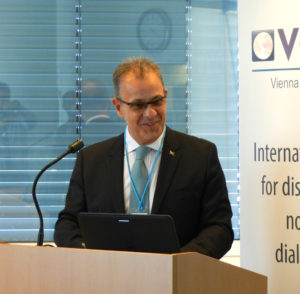
During the seminar, Admiral Leite de Albuquerque highlighted Brazil’s goal of transparency and public engagement. This included a discussion of Brazil’s peaceful nuclear programme and the relationship between the Brazilian navy, its nuclear energy industry and future developments of the programme. According to the Admiral, the main goal for the Brazilian government is to provide transparency while protecting sovereign nuclear technology.
The Brazilian navy was described as instrumental to the growth and development of the country’s nuclear programme. The Navy Nuclear Technology Center is a major producer of Brazil’s nuclear technology and development. The navy works closely with research institutes, universities and the science and technology sector. For example, the navy provides all ultracentrifuges for industry and assists with funding and overseeing the operation of certain projects in collaboration with civil nuclear energy companies. The majority of these projects, as well as Brazil’s nuclear infrastructure, reside in and around São Paulo, Brazil.
One major ambition of the navy’s development strategy is the creation of a nuclear-powered submarine through their nuclear propulsion programme. The programme has been under development since the 1970s. Nuclear-powered submarine technology is a major goal for Brazil because it would create the capacity for a more sophisticated and long-lasting submarine to patrol Brazil’s territorial waters or, as they refer to it, the “Blue Amazon”. The speakers stated that Brazil’s desire for a nuclear submarine relate to the vastness of their territorial waters and the expense of maintaining and fueling conventional submarines.
Another key goal of nuclear development is for civilian uses. The presentation included a message from the Brazilian President, who stated that the continued development of peaceful uses of nuclear energy will be beneficial to the Brazilian healthcare system because it would allow for the indigenous production of radiological pharmaceuticals. The majority of radiological pharmaceuticals are imported from more advance nuclear energy States. Another project under development in the civilian sector is desalination. Desalination is the process of removing salt from ocean water, the byproduct of which is fresh water. As fresh water sources are increasingly threatened by factors like climate change and a growing urban population, Brazil has begun focusing on increasing this capacity with nuclear energy. The critical component of these future technology capacities lies in the construction of Brazil’s first multi-purpose reactor, which is being constructed by the National Nuclear Energy Commission, in cooperation with the Brazilian Navy and Argentina.
The seminar was concluded with a round of questions from the audience. These related to Brazil’s enrichment capabilities, the likelihood of Brazil agreeing to conclude an Additional Protocol and the views of members of Congress, political parties and the Brazilian public on the nuclear programme. The Brazilian Navy representatives stated that the Brazilian uranium enrichment capacity is in low enriched uranium and that they were looking forward to conducting a dialogue about safeguards approaches to the Brazilian nuclear propulsion programme and other matters pertaining to safeguards. According to the speakers, there was no serious resistance to the expansion of Brazil’s nuclear programme because the benefits of its development are seen as a constitutional right for the Brazilian people. Overall, they said, Brazil is working to develop a long lasting efficient nuclear energy programme.
